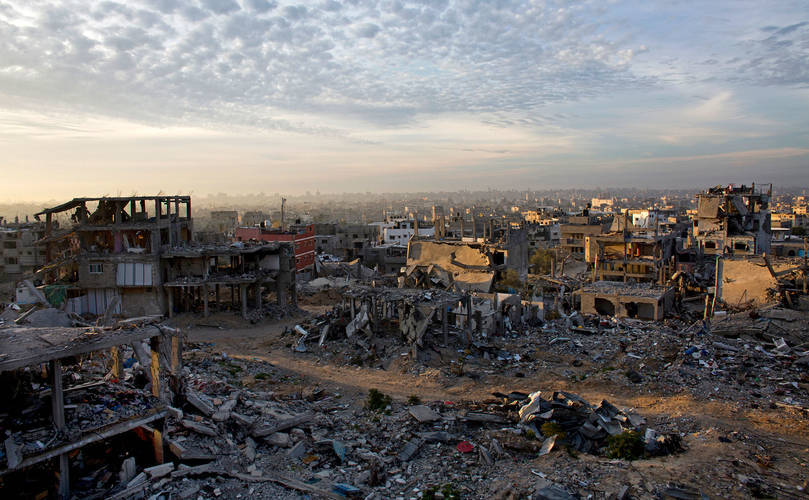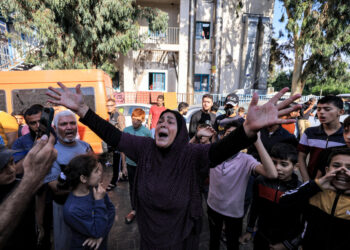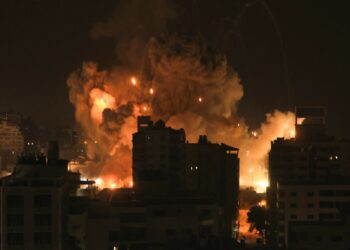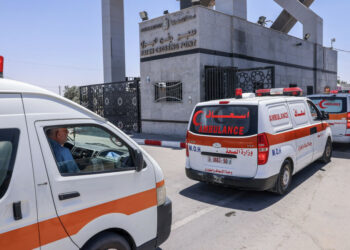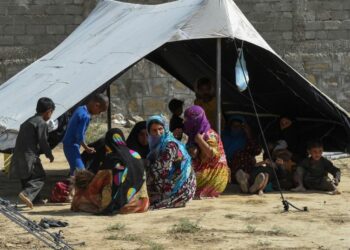While the world is appropriately focused on the massive humanitarian crises in places like Syria and Mosul and South Sudan, two million Gazans face a growing manmade disaster that is largely invisible. After 50 years of occupation, a decade of strangulating siege, and multiple high and low-intensity Israeli assaults on an almost daily basis, a power struggle between Hamas and Fatah, aided and abetted by the Israeli government, now threatens the very lives of these beleaguered people.
The longterm Israeli policy of severe restrictions and closure is being exacerbated by a cynical manipulation between Hamas and the Palestinian Authority which has resulted in a 40% reduction in the already limited supply of electricity by Israel. This comes on top of a dramatic 30-50% cutback of salaries for the estimated 58,000 PA civil society workers in Gaza who were ordered to stop work in 2007 when Hamas came to power while continuing to receive their salaries. In Gaza, unemployment rates of 44% are already among the highest worldwide with rates up to 60% among educated youth, a number that will only rise with the loss of salaries.
These facts and the ensuing health risks are mind-numbing. There are deficiencies of essential medications, radiotherapy, chemotherapy, and sewage treatment. In the midst of the hot summer months, most Gazans are receiving erratic electricity two to six hours per day and water six to eight hours every four days while desalination plants are functioning at 15% capacity. The UN reports that 34% of essential drugs at the Central Drug Store in Gaza are out of stock. 186 critical facilities providing health, water, and sanitation, and solid waste collection services are being supported by emergency fuel delivered by the UN reserves which are expected to last until October. More than 108 million liters of untreated sewage is flowing into the Mediterranean daily due to electricity and fuel shortages, and the damage to infrastructure from recent wars.
While permits to leave Gaza for medical care have been severely restricted for years and sometimes available only through collaboration, the referrals of hundreds of patients for medical treatment outside Gaza have been disrupted since March 2017, following the PA’s apparent suspension of its payments for this service. Operating on largely backup generators, medical facilities are facing an imminent lack of fuel and thus only critical surgeries and emergency services are being provided.
There are cutbacks on sanitation and sterilization of equipment, patients are being discharged prematurely from hospitals, and essential machinery such as neonatal incubators, ventilators, imaging and dialysis machines are breaking down as a result of frequent, intermittent power outages as well as the lack of maintenance and replacement parts. Health care has also suffered from years of de-development and restrictions on professional training outside the Strip, as well as direct targeting of infrastructure by the Israeli military during the war.
Visiting Gaza as a physician in 2015 and 2017 made these statistics tangible. What this means in real life is that computer work, answering emails, taking exams, refrigerating food or medications, running dialysis machines or respirators, cooking dinner, cleaning, and a thousand things that 21st-century people expect to be able to do are now not reliably expectable. There are reportedly only two functioning mammograms; women with breast cancer are routinely treated with mastectomy due to the lack of other options. There is no plastic surgery, lumpectomy and radiation are not available. Gazan women with breast cancer are dying at two to three times the rates of women receiving first world care.
What this also means is that the shortage of power and fuel to operate water and wastewater treatment facilities and the subsequent reduction in access increase the risk of waterborne diseases. The limitations on water pumps and desalination plants have led to a decrease in water consumption and standards of hygiene. The decrease in sewage treatment has led to increased pollution along the Gaza coast (which by the way, does flow north to Israel) and an increased risk of sewage back flowing onto streets, creating additional flooding, displacement, and disease.
There are also the psychological costs to living in this environment. In January 2017, Dr. Yasser Abu Jamea, executive director of the Gaza Community Mental Health Program, noted that patients treated for PTSD post one war easily relapse with the first reminders of bombing in the next war. Children who were doing well are suddenly bedwetting again and waking screaming in the night. The cues for the traumatic events are everywhere and can trigger trauma that goes back to the occupation in 1967. He calls this “delayed onset PTSD.” The war in 2014 was the worst and was experienced by a population with an accumulation of traumatic events and an inability to escape the war which has been continuously present. Patients talked of reliving traumas back to 1948.
A Gazan human rights worker said to me, “It is not burning us out. What burns us out is the repetition of what we are doing, the endless journey, never, never the last round. Either by the Israeli bulldozers, the lack of coordination with Ramallah, the mission is never accomplished. People are suffering from food insecurity; they can’t access their land. If they do, they can’t access resources. If they do, then there are land restrictions and they are afraid of rockets. If they do, they are not sure if the harvest will be a good profit at a local market because Israel will not allow the food to go outside. It is endless.
“That is the source of our frustration. We should have burnt out a long time ago. We believe the people in Gaza deserve that we just keep working to keep them standing. In Gaza, we [UN] are supporting 1.3 million people.”
The right to health requires a functional health care system and public health infrastructure and is internationally recognized as the responsibility of the occupying power, Israel. The power battle between Hamas and Fatah is also unconscionable and undoubtedly manipulated by powerful outside forces as well as internal dysfunction.
The steady deterioration of the lives of the people in Gaza in the face of occupation, siege, internal discord, and the willful blindness of the international community can only be described as a not so slow genocide that is obvious to anyone who chooses to see.
Disclaimer: The views and opinions expressed here are those of the author and do not necessarily reflect the editorial position of The Globe Post.

